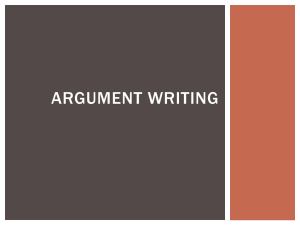The Eichmann Trial in Retrospect
advertisement
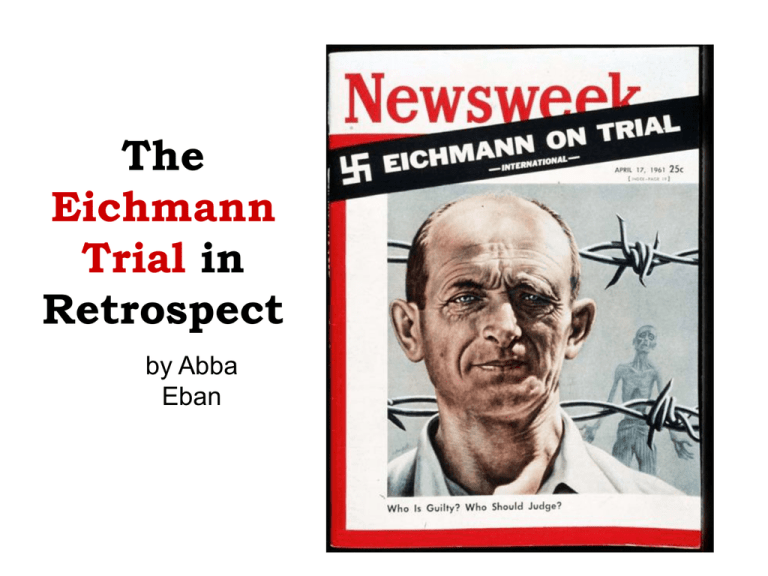
The Eichmann Trial in Retrospect by Abba Eban Thesis • He who cannot remember the past is doomed to repeat it (Santayana) Memory is the father of conscience Paragraphs 1, 2, 3 • Examples of evidence that were examined at Eichmann’s trials are introduced First one • Memo about furnaces to gas bodies in • Businesslike tone of the memo contrasts with the horror of the content) Second evidence • Acknowledgement of inquiries about the furnaces Paragraph four • Eichmann’s direct association with the holocaust is revealed • Head officer of the Secret Service Paragraph 5 • Explanation of the asphyxiation procedure. An example of a factual one similar to the one produced at the trial • Descendants of the holocaust victims can never forget Paragraph 8 • Discusses the consequences of being Jewish during Eichmann’s years in power Paragraph 9 • Holocaust is still alive in the people who were in some way part of it • People “who committed, suffered, or failed to prevent these things.” Paragraphs 10, 11 • Eban discusses whether the holocaust should be wiped from the tablets of memory • Trial shows the sublime and the worst in human nature Paragraphs 12, 13 • To answer the question “we must look to the future and not to the past” • Human conscience must be awakened. 14 • Technological advances were implemented without understanding humanity • Science used without realizing consequences • ( we need to control our inner domain) 15,16 • The trial occurred not for vengeance, but to teach that discrimination, taking place in small beginnings, leads to vast and uncontrollable disaster • He believes in limiting free speech 17-20 • How Jews were not considered part of humanity • “Education is the central core of moral progress.” • Not a matter of vengeance, but to prevent a reoccurrence: the past conditions the present • Renaissance artists showed the human soul drawn upward and down
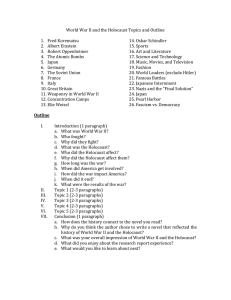
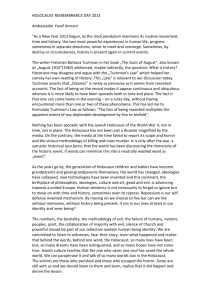

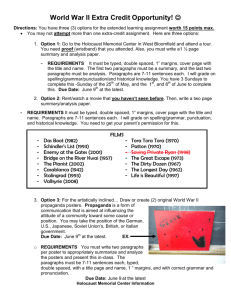
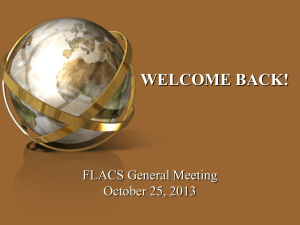
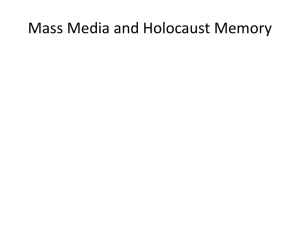

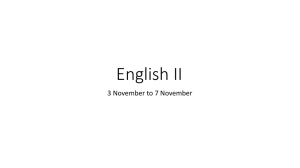
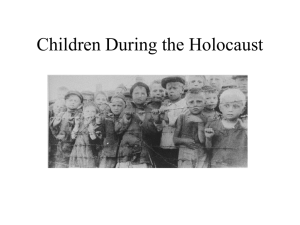
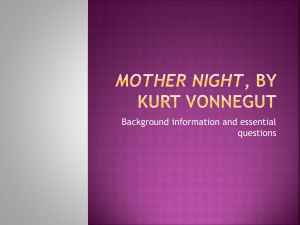
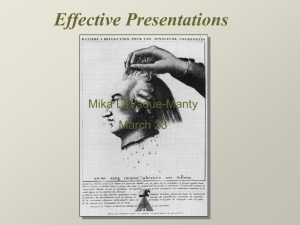
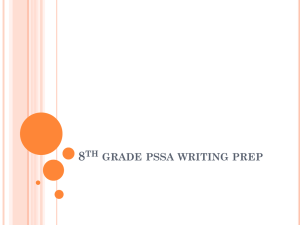
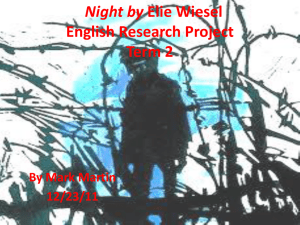
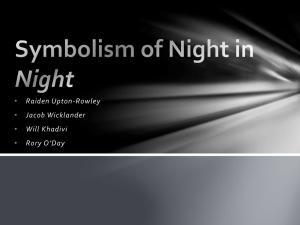

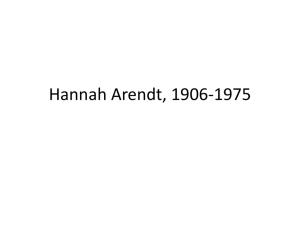
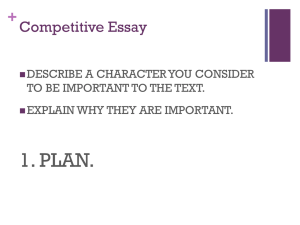
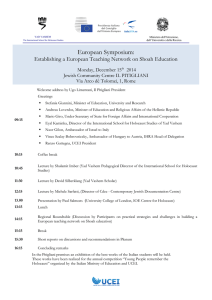

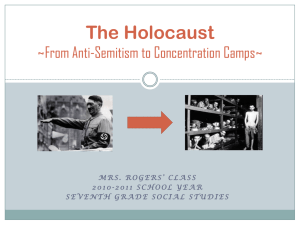
![Workshop 4: Perpetrators in Movies and the Role of Film... Barry Langford, The Dramatic Portrayal of Perpetrators in Holocaust Film [DRAFT]](http://s2.studylib.net/store/data/012624092_1-b69cda7c0c423f43b1c5b1a00acedbbd-300x300.png)
